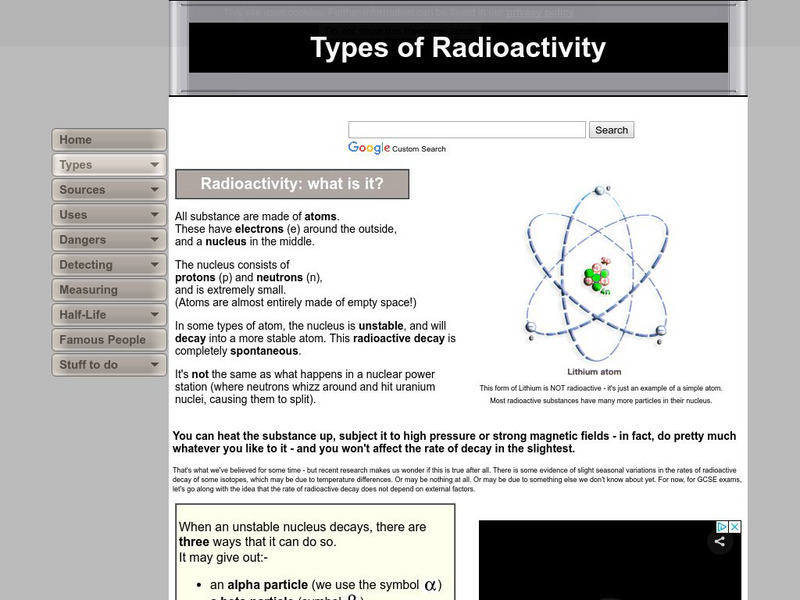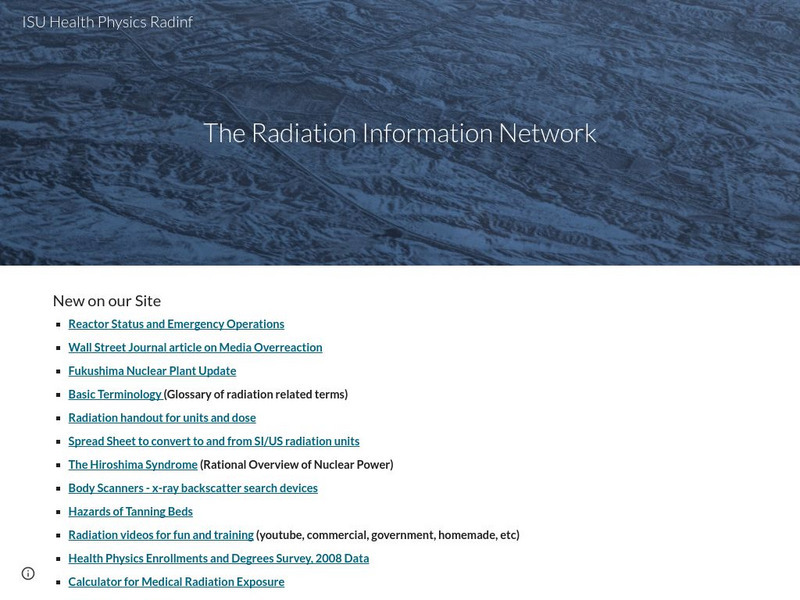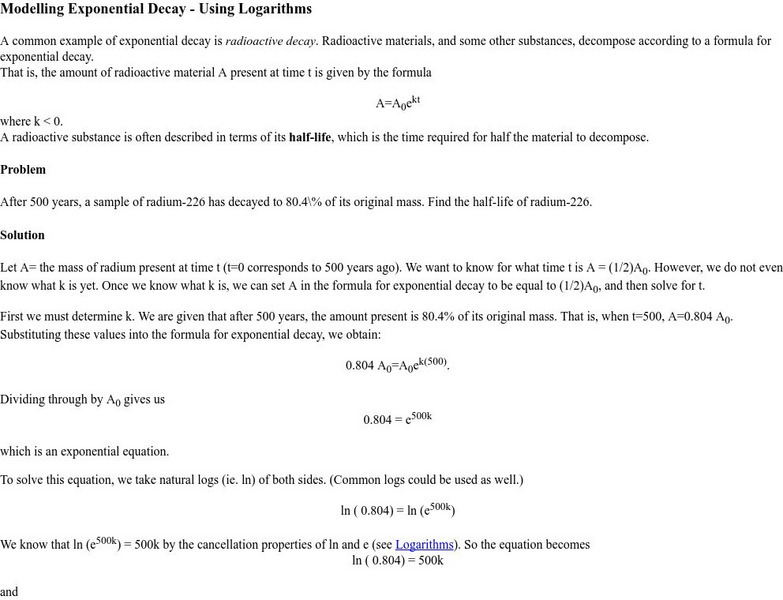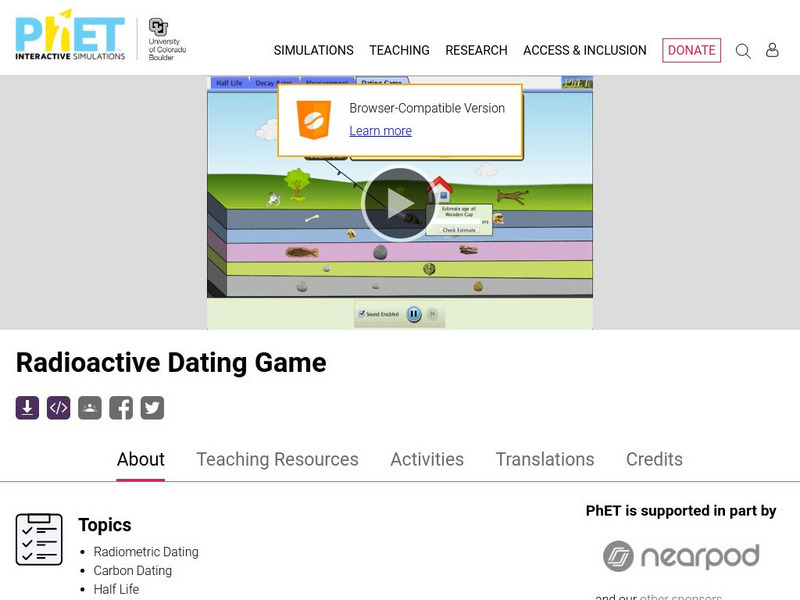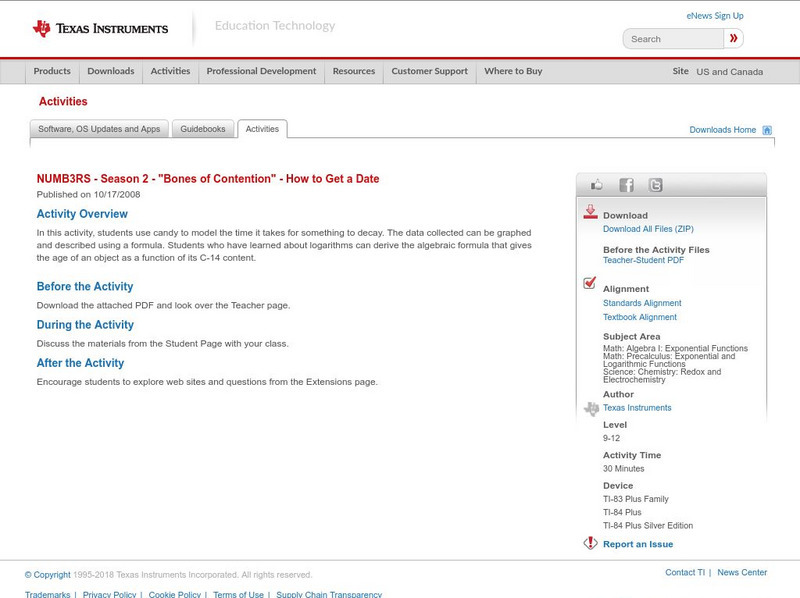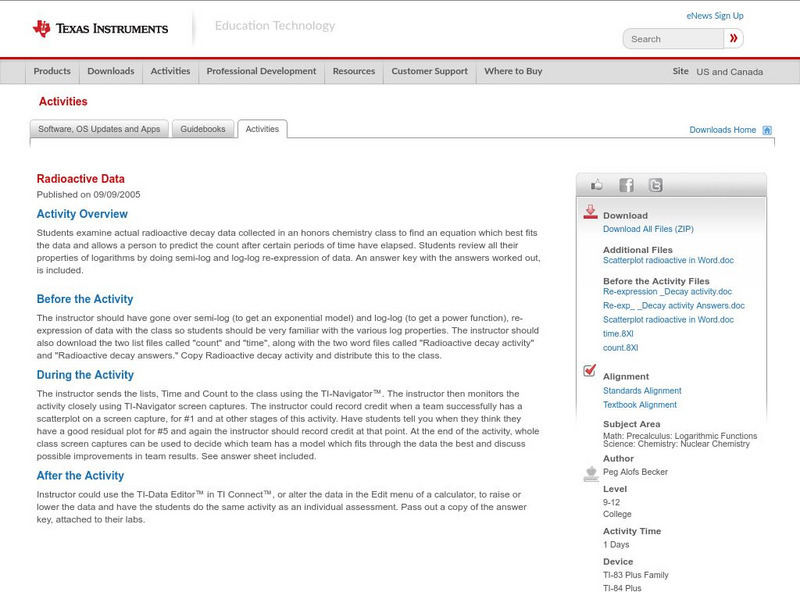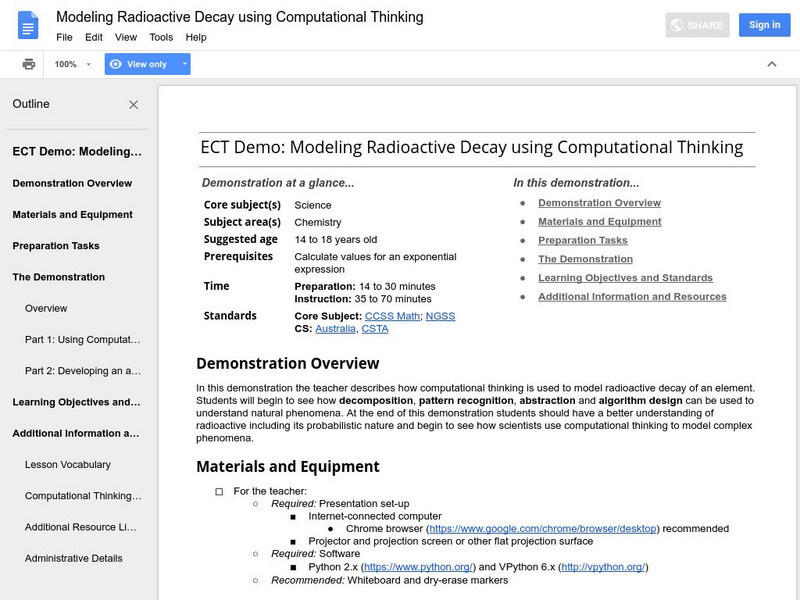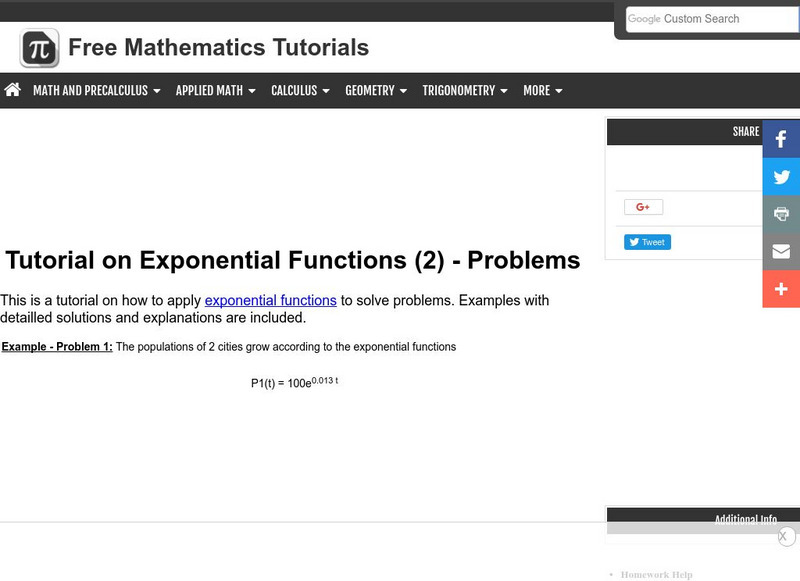CK-12 Foundation
Ck 12: Earth Science: Radioactive Decay as a Measure of Age Study Guide
[Free Registration/Login may be required to access all resource tools.] Summarizes the key points about how radioactive particles decay. Includes a few questions to check for understanding.
Other
Andy Darvill's Science Site: Types of Radioactivity
Find out about radioactivity, and how it occurs inside an atom's unstable nucleus.
Idaho State University
Radioactivity in Nature
Interesting information including: average annual dosage, radioactivity in space, in the human body, and in the oceans.
Other
American Institute of Physics: Marie Curie and Radioactivity
A very readable account of the discovery of radioactivity and its properties.
University of Colorado
University of Colorado: Physics 2000: Beta Decay
An interactive turtorial on beta decay. Very readable and has a little extra for the advanced student.
University of Saskatchewan (Canada)
University of Saskatchewan: Modeling Exponential Decay Using Logarithms
Radioactive decay is a real-life example of exponential decay. This site solves an example problem by using the exponential decay equation.
CK-12 Foundation
Ck 12: Physics Simulation: Marie Curie's Classroom
[Free Registration/Login Required] Study the basics of radioactive decay and the properties of atomic nuclei in Marie Curie's laboratory and classroom. A PDF worksheet and a video tutorial are also available. [3:32]
University of Colorado
University of Colorado: Ph Et Interactive Simulations: Alpha Decay
Watch alpha particles escape from a polonium nucleus, causing radioactive alpha decay. See how random decay times relate to the half life. Java required.
University of Colorado
University of Colorado: Ph Et Interactive Simulations: Radioactive Dating Game
Learn about different types of radiometric dating, such as carbon dating. Understand how decay and half-life work to enable radiometric dating. Play a game that tests your ability to match the percentage of the dating element that...
Texas Instruments
Texas Instruments: Numb3 Rs How to Get a Date for Episode
Students will learn how to estimate time of death by using a lab that models carbon dating and radioactive decay. Activity pages complete with calculator keystroke instructions and screenprints are included in this lesson plan based on...
Chem4kids
Chem4 Kids: Atoms: Neutrons
Students will find an explanation of the neutron particle located inside the atom's nucleus. Website also defines isotopes and the process of radioactive decay.
Texas Instruments
Texas Instruments: Radioactive Data
Students examine actual radioactive decay data collected in an honors chemistry class to find an equation which best fits the data and allows a person to predict the count after certain periods of time have elapsed. Students review all...
Google
Google for Education: Model Radioactive Decay Using Computational Thinking
Through this demonstration students will understand radioactive including its probabilistic nature and begin to see how scientists use computational thinking to model complex phenomena.
Lawrence Berkeley National Laboratory
Berkeley Lab: Neutron Activation Analysis
A simple explanation of neutron activation of some natural elements in order to create a radioactive nucleus.
Other
Nrc: Unit 2 the Uses of Radiation
A lesson plan on the uses of radiation in science, industry, and medicine. Gives many household examples of how radiation is used. Learners will also learn about the NRC's role in regulating radioactive materials.
Georgia Department of Education
Ga Virtual Learning: Nuclear Physics
Through informational text, interactive activities, and virtual animations students learn about the atomic nucleus, fission, fusion, and radioactive decay.
Other
Le Moyne College:elements & Atoms, Indivisible No Longer
Click to read different historical documents in chemistry related to the history of the study and discovery of radioactivity.
CK-12 Foundation
Ck 12: Radioactive Half Life
[Free Registration/Login may be required to access all resource tools.] Explains radioactive half-life and radioactive dating, and demonstrates how to solve problems with each.
Ducksters
Ducksters: Chemistry for Kids: Radioactivity and Radiation
Kids learn about the science of radioactivity and radiation in chemistry including radioactive decay, types, measurements, half-life, and the dangers.
Georgia Department of Education
Ga Virtual Learning: Physical Science: Nuclear Chemistry
A complete learning module with interactive activities as well as informational text to help students distinguish the characteristics and components of radioactivity.
Other
Nrc: Unit 1 Radiation
This site has lesson plans and activities related to radiation. Activities include measuring radiation with a Geiger counter and observing radiation 'footprints' in a cloud chamber.
Lawrence Berkeley National Laboratory
Berkeley Lab: Radioactivity
Overview of radioactivity, the process in which particles are emitted from nuclei as a result of nuclear instability.
Lawrence Berkeley National Laboratory
Berkeley Lab: Gamma Decay
A brief explanation of the process of gamma decay is provided.
Analyze Math
Analyze Math: Exponential Functions (2)
The tutorial investigates how to use exponential functions to solve word problems. Some topics explored are population and radioactive decay. The activity includes examples with detailed solutions.



